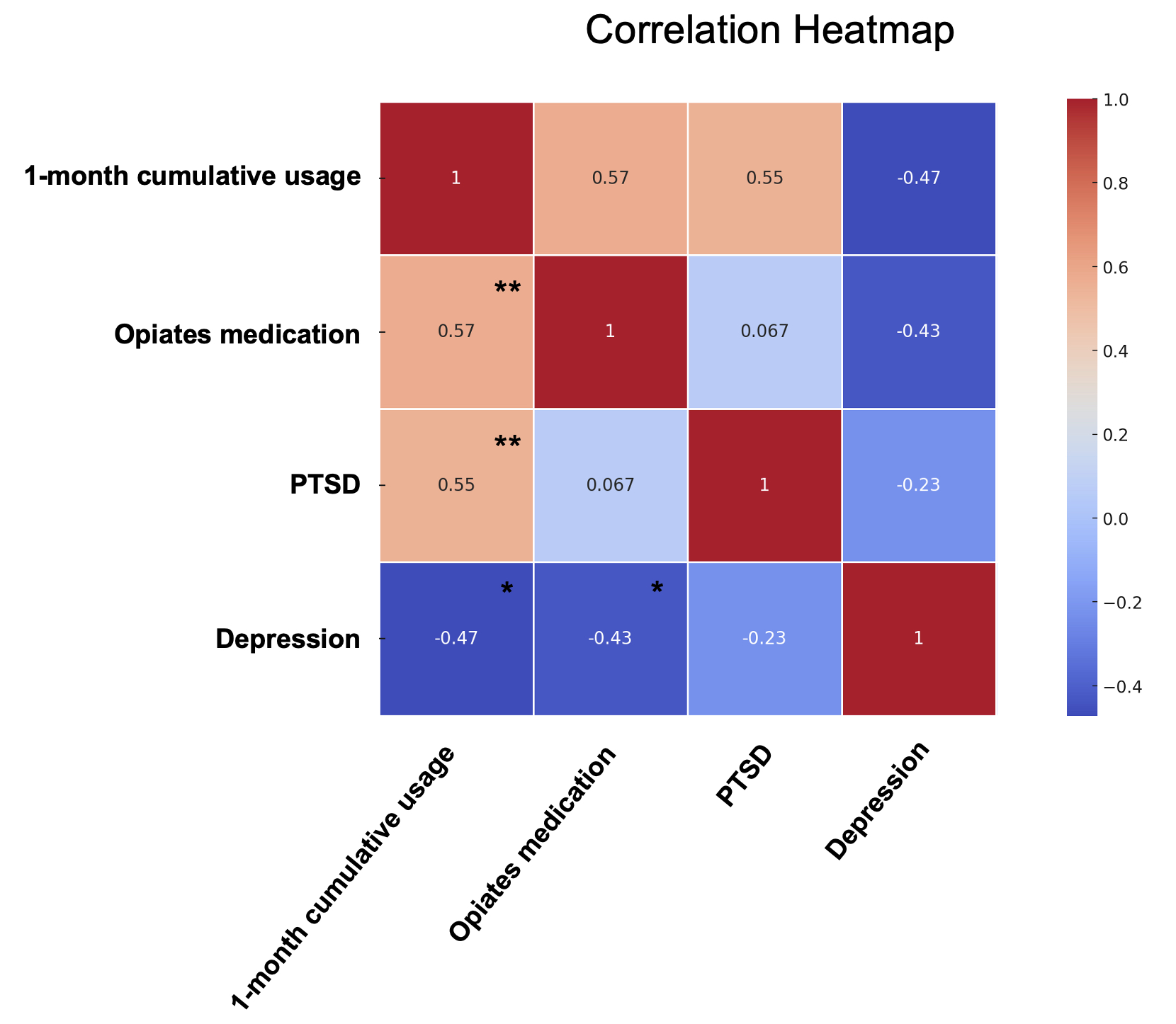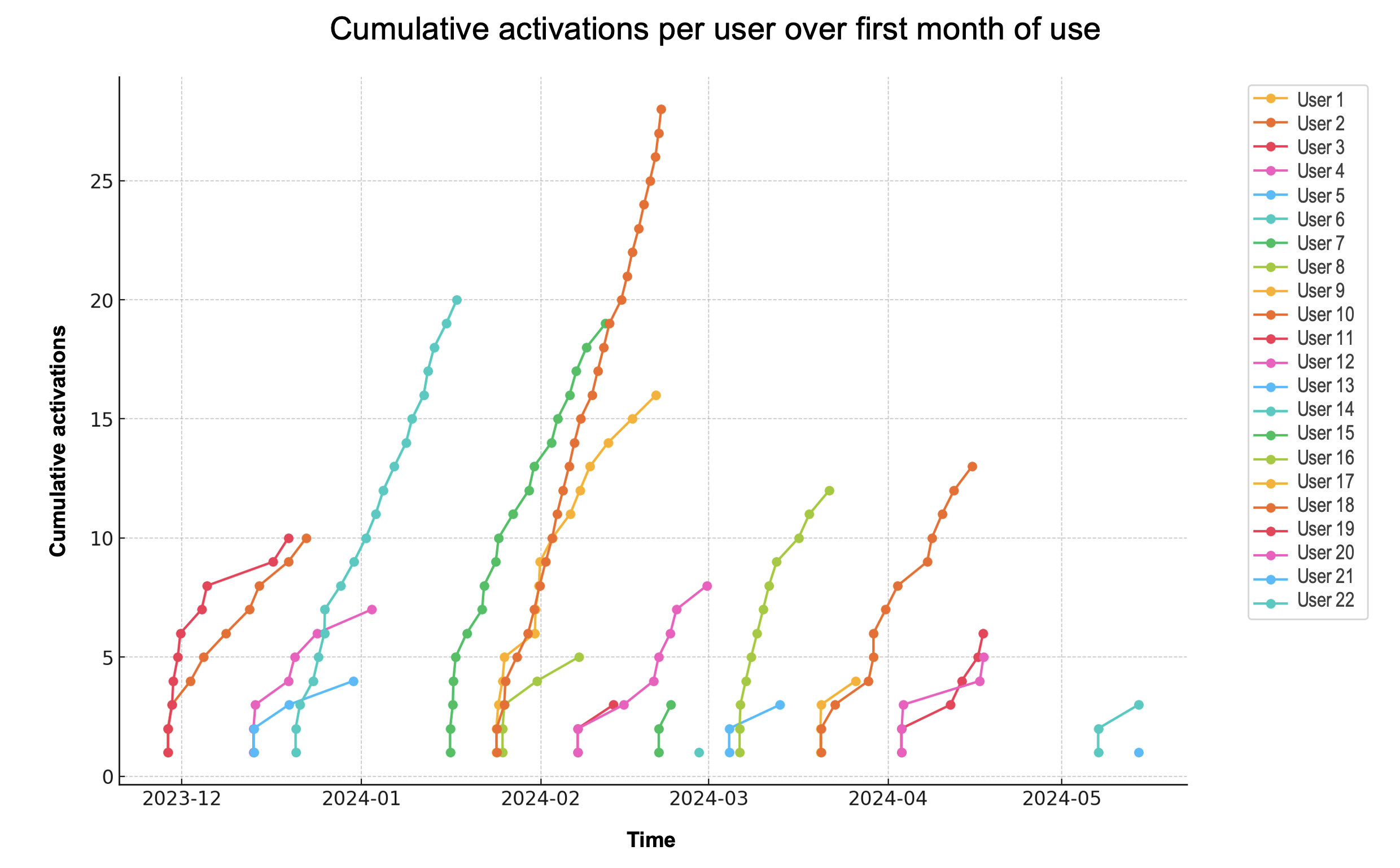Session Information
Session Type: Poster Session C
Session Time: 10:30AM-12:30PM
Background/Purpose: Mobile health apps have demonstrated effectiveness in managing chronic musculoskeletal pain syndromes such as fibromyalgia. We developed an app called POCOS for chronic musculoskeletal pain management, focusing on a patient-centered design. Understanding the relationship between patient interaction with the app and their clinical and demographic characteristics is essential for refining these tools and enhancing personalized digital health strategies. This study aims to explore the clinical and demographic prognostic factors in patient profiles for engagement in a mobile health app for chronic pain management.
Methods: A test version of POCOS was released for iOS and Android, with participants recruited from a multimodal care program for chronic musculoskeletal pain. Patients underwent various assessments such as for fibromyalgia, alexithymia, pain disability, psychiatric conditions or medication. Over four weeks, we collected usability metrics and patient-reported outcomes through the app, with patients being weekly reminded to use the app via SMS.
Results: POCOS was presented to 44 patients. Of those, 28 (64%) accepted to use it and participate in the study, with 24 (55%) finally downloading the app and 22 (50%) actively using it. The cohort was 82% female with a mean age of 46.1 ± 10.5 years. Among users, 91% fulfilled ACR criteria for fibromyalgia, 86.4% had depression, 18.2% anxiety, 13.6% Post Traumatic Syndrome Disorder (PTSD), mean Wide Spread Index (WPI) was 12.0, and mean Symptom Severity Scale (SSS) was 8.36; 26.3% exhibited alexithymia. Intermediate analysis shows significant correlations between cumulative app use and opiate medication (r = 0.57, p < 0.01) and PTSD (r = 0.55, p < 0.01). Depression was negatively correlated with app use (r = -0.47, p < 0.05). No significant correlations were observed with sex, age, BMI, FiRST (Fibromyalgia Rapid Screening Tool), WPI, and SSS scores. App use and virtual reality session efficacy for pain reduction showed a marginally significant correlation (r = 0.40, p = 0.07). A strong significant correlation was observed between the number of completed health forms and app usage, indicating high compliance in patient reported outcomes documentation (0.84). Recruitment and data collection are ongoing.
Conclusion: This study highlights how clinical and demographic factors influence engagement with the POCOS app for chronic pain management. Positive correlations between app usage and conditions such as PTSD or opioid medication use suggest these patients benefit from such approaches. However, the negative association with depression indicates challenges in engaging these individuals. These findings underscore the need to tailor digital health interventions to individual patient profiles for optimal engagement and outcomes. Future research with a larger cohort will clarify these relationships and guide the refinement of personalized digital health strategies for chronic pain management.
To cite this abstract in AMA style:
Blanchard M, Koller C, Hermann P, Mettler J, Prétat T, Ming Azevedo P, Hügle T. Predictors of Patient Engagement and Usability in a Chronic Musculoskeletal Pain Management App [abstract]. Arthritis Rheumatol. 2024; 76 (suppl 9). https://acrabstracts.org/abstract/predictors-of-patient-engagement-and-usability-in-a-chronic-musculoskeletal-pain-management-app/. Accessed .« Back to ACR Convergence 2024
ACR Meeting Abstracts - https://acrabstracts.org/abstract/predictors-of-patient-engagement-and-usability-in-a-chronic-musculoskeletal-pain-management-app/


